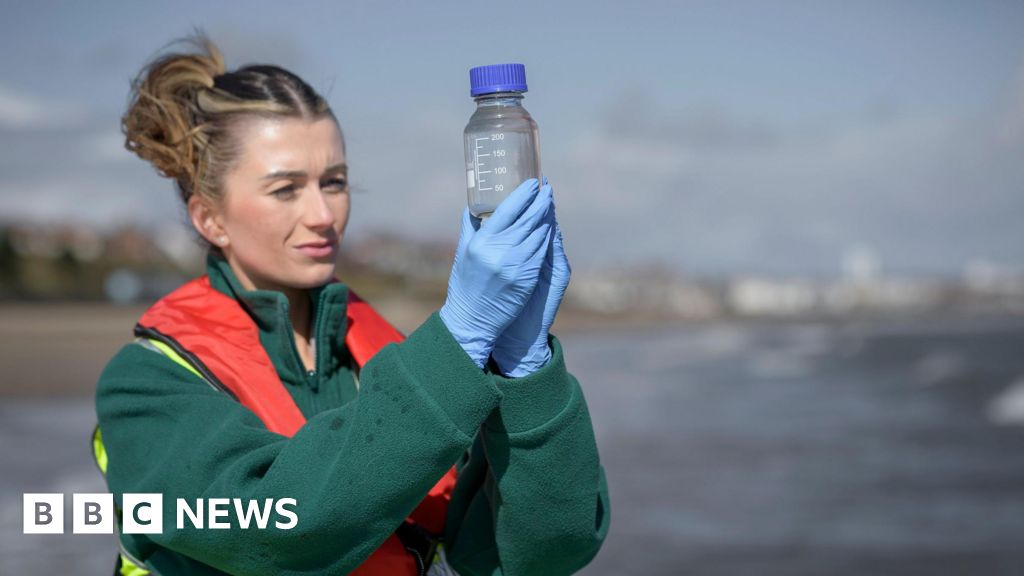Water companies should no longer be allowed to monitor their own levels of sewage pollution, the industry body has told the BBC exclusively.
Instead they are proposing a new, third-party monitoring system to build consumer trust.
The recommendation is part of a submission made to the UK government’s independent review into the water sector.
Campaigners have long complained the companies’ self-reporting has prevented the true scale of pollution in UK water being revealed.
A third-party system could add more pressure to the regulators, which have also been criticised for not holding the companies to account.
A report from the National Audit Office is expected to say on Friday that the Environment Agency does not currently have enough capacity to take on any new monitoring.
David Henderson, CEO of industry body Water UK, told the BBC: “We absolutely accept that self-monitoring is not helping to instil trust and so we would like to see an end to it, and in place of it a more robust, third-party system.”
As part of their permitting arrangements water companies are expected to regularly sample water quality to identify potential pollution, and submit this data to the Environment Agency in an arrangement known as “operator self monitoring”.
But there have been incidents of misreporting by water companies in England and Wales uncovered by the regulators, who said some cases had been deliberate.
Southern Water was previously issued fines totalling £213m by the industry regulator (Ofwat) and the environmental regulator (the Environment Agency) for manipulating sewage data.
In that case, there was unreported pollution into numerous conservation sites which caused “major environmental harm” to wildlife.
The company later admitted its actions “fell short”.
Henderson added that the industry never asked to self-monitor, but that it was introduced in 2009 by the then Labour government to “reduce the administrative burden” on the Environment Agency (EA).
In 2023, the BBC reported that EA staff were concerned that, due to funding cuts, the Agency was increasingly relying on water companies to self-report rather than carrying out its own checks on pollution from sewage.
The current environment minister, Steve Reed, has promised to review the system, calling it the equivalent of companies “mark[ing] their own homework”.
But the National Audit Office (NAO), which reviews government spending, questioned the ability of the EA to take on any new monitoring.
“Regulators need to address the fact that they currently have limited oversight over whether water companies are carrying out their work as expected. It is hard to see how they will achieve this without increased overall capacity,” said Anita Shah, NAO Director of Regulation.
It is expected to publish a full review of the regulation of the water sector on Friday.
A Defra spokesperson told the BBC: “We are committed to taking decisive action to fix the water industry. The Water Commission’s recommendations will mark the next major step [to] restore public trust in the sector.”
The government launched an independent water commission in October to review the sector and the way it is regulated. The public consultation closed on Wednesday with the findings expected in July.
Water UK submitted a 200-page document of recommendations, including this call to end self-monitoring.
The industry body also requested that water meters be universal across England and Wales to make bills fairer. At present about 60% of the population have a meter.
“The meter is just to ensure that people are paying for what they use as opposed to a flat rate of system where you can use virtually no water and pay the same as someone filling up a pool three times in a summer,” said Henderson.
“This doesn’t properly reflect the value of water and encourage people to conserve it in the way that we need,” he added.
#Water #industry #admits #sewage #monitoring #damaging #public #trust










